How Professional Cyclists Balance Training, Nutrition, and Mental Preparation
CyclingSaturday, 01 November 2025 at 10:56

Cycling success isn’t just what happens during a competition or the effort you put in during the race. Behind that podium finish and every yellow jacket, you’ll find years of work, sacrifice, planning, teams of people, and they’re all essential to this success. Professional cyclists rely on finding a careful balance between three key pillars: training, nutrition, and mental preparation.
ADVERTISEMENT
Building Peak Performance Through Training
Consistent performance and longevity as an athlete, that’s all built through training, nothing else. But you need to find an equilibrium to ensure you’re pushing your body and building your strength, but not burning out or risking injury.
ADVERTISEMENT
Structured periodisation. Pro cyclists don’t use the same approach day in, day out. Years are divided into distinct training blocks. There are the base, building, and peak phases, all structured to develop endurance progressively, ensuring athletes are prepped for the big races.
Gym Training. To keep your body strong and supple, you can’t avoid the gym. You’ll have to get off that two-wheeler and have an off-the-bike training program, unfortunately. Training helps correct muscular imbalances and lowers the risk of injury. If you’re into racing, strength training for sprints is a key component.
Technology and Data. Data is a powerful tool, and it’s something that athletes heavily rely upon, combining the latest hardware with advanced analytical software tools to track performance. It helps guide effort levels throughout the season, tracking a body’s response to a training session.
ADVERTISEMENT
Training Kit. Technology has improved quite a bit since those old cotton cycling kits from the 1930s, that’s for sure. Modern training kits can significantly improve performance, even for amateur cyclists. Choosing the right cycling gear is not just about looking great (although it doesn’t hurt!), but about elevating your performance and comfort.
Nutrition, Fueling the Engine the Right Way
Without a healthy and purpose-built nutrition plan, the professional athlete will not perform. That’s just the basic truth; what goes into the body matters just as much as how it’s trained.
Meal Timing. Athletes need to have their glycogen stores full, recovery needs to be aided by meals, and eating at the right time also helps get the most out of training sessions. And for race day, meal timing is crucial.
Hydration Strategy. This can make or break a race, it’s not just about having water on standby when the athlete is thirsty. Plans should be personalized, with hydration and electrolyte balance differing depending on weight and even sweat rate. And for those hot races, it’s crucial to prevent potentially dangerous situations.
ADVERTISEMENT
Real Food vs. Supplements. Ads for supplements are plentiful and many have gone down that route, but the pros tend to prefer real food. Avoid UPFs, for example. Eat whole foods, like rice or oats, instead of an expensive health bar from the supermarket. Have plenty of veggies and fruits. Professional athletes don’t consume tubs of protein shakes, but add selected supplements to their cycling nutrition plan.
Mental Preparation and Staying Focused Under Extreme Pressure
The pressure on professional athletes is intense. Their bodies are being pushed to the limit, and the external pressure from media and fans, is extreme. That’s why mental preparation is just as important as training or nutrition.
Mindfulness and Focus. The research is clear: mindfulness works. It’s not just a buzzword, which is why professional athletes take breathing exercises and meditation very seriously. They lead to measurable improvements in stress levels, affecting overall health and happiness, too.
Visualization Practices. Many pros mentally prepare by visualizing the race before it happens. Specifically, those challenging moments, like climbs when the body is under stress, or the sprint finishes that require going further than you thought possible.
ADVERTISEMENT
Coping with Fatigue. It might not sound like part of mental preparation, but fatigue isn’t just physical, it’s mental, too. The body and mind don’t always tire at the same rate. Sometimes your body feels done, yet there’s still that extra 10% left in the tank.
Or conversely, pushing your body too hard can be damaging. That’s why athletes invest in mental training, being aware of their bodies and psychological journey through a race, and so coping with fatigue in the right way.
Support System. Athletes need a support system around them. Because you can’t do it alone, even if you’re the most talented and physically gifted athlete on the tour. Coaches, sports psychologists, family, friends, and the help of teammates are all necessary for good mental health.
The Power of Balance
Balancing training, nutrition, and mental well-being is a combination of science and art for professional athletes that cannot be implemented without planning.
Success isn’t just a test of physical prowess, but a result of years of training, investing in nutrition, and preparing mentally throughout the season. It’s a fine balance, but once in harmony, the results are beautiful to watch.
IDL-productions
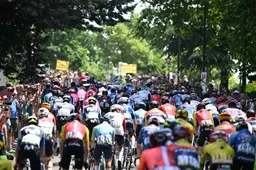
Vacancy: Growth Editor IDL Procycling - (native) English

The future Grand Tour man? Jarno Widar would rather take on Pogacar and the rest somewhere else
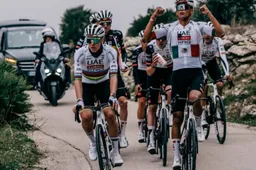
Isaac del Toro steps briefly out of Tadej Pogacar’s shadow: “That’s the idea for 2026”
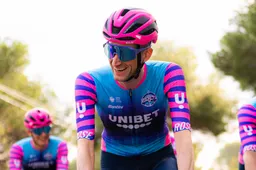
“Then that dream suddenly exists again”: does Wout Poels still have a unique shot at one last cycling wish?
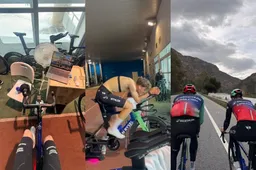
Seixas faces major mental challenge ahead of a season full of Pogacar duels (and the Tour?)
Latest Cycling News

Vacancy: Growth Editor IDL Procycling - (native) English
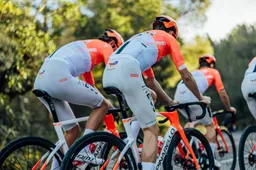
INEOS Grenadiers bring Tour-level squad to already stacked Volta ao Algarve start list
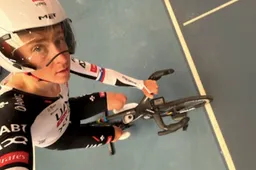
Pogačar winks after bizarre encounter: “A long day ended with losing my biggest fan”

The future Grand Tour man? Jarno Widar would rather take on Pogacar and the rest somewhere else
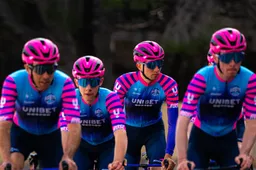
Unibet Rose Rockets invited back to Roubaix (under a new race name), major surprise for Hincapie’s team
Popular Cycling News
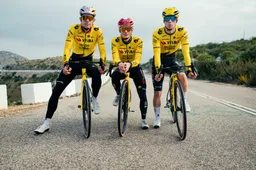
Visma | Lease a Bike responds after yet another winter of setbacks, departures and criticism
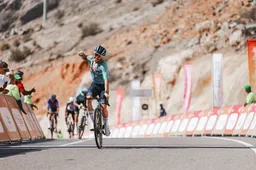
Did Astana’s bizarre one-day haul of UCI points expose the sport’s biggest problem?

Pogačar winks after bizarre encounter: “A long day ended with losing my biggest fan”

Isaac del Toro steps briefly out of Tadej Pogacar’s shadow: “That’s the idea for 2026”

While Del Grosso heads out with buddy Ovett, Van der Poel trains with Red Bull and Evenepoel
Latest Comments
- They were close to cracking a very tired Tadej that wasn't fully focused on the TdF with a team of riders focused solely on cracking Tadej. And if they cracked him, he would have still won. Tadej won't be racing the giro this year. It'll be an even easier win for him.Veganpotter09-02-2026
- Nice!Bea22-01-2026
- Those events are mental rest for him. Fun, without expectations. *Sagan lost his abilities because he gained weight and got lazy. Pogi will likely retire before that has a chance at happening.Veganpotter14-12-2025
- Ah, the consequences of riding for Israel.Veganpotter11-12-2025
- Pidcock could follow everyone but Pogi while finishing 3rd. No second place rider this season😃Veganpotter16-11-2025
- Now the Palestinian protestors can stop their whining. Trump came to the rescue. So they can now STFU and go back to waving the rainbow flags.raufus15-10-2025
- Cracked the code lol. If it was that easy to 'crack the code' jonny Vegas would be charging up the Kwaremont giving Pog a dose of his medicine. Evenepoel can't match pog on a climb and neither can mvdp. Anything with a half difficult climb and Pog smashes the field. Even on flat(ish)parcours like Roubaix it came down to a mistake and crash by pog to definitively crown mvdp. MSR is the only one that Pog probably won't win.kevpt10-10-2025
- We've seen this movie before. I think Pogacar is doping.DeadBlow10-10-2025
- 👍Bea08-10-2025
- 👌🏻Bea08-10-2025
Loading